
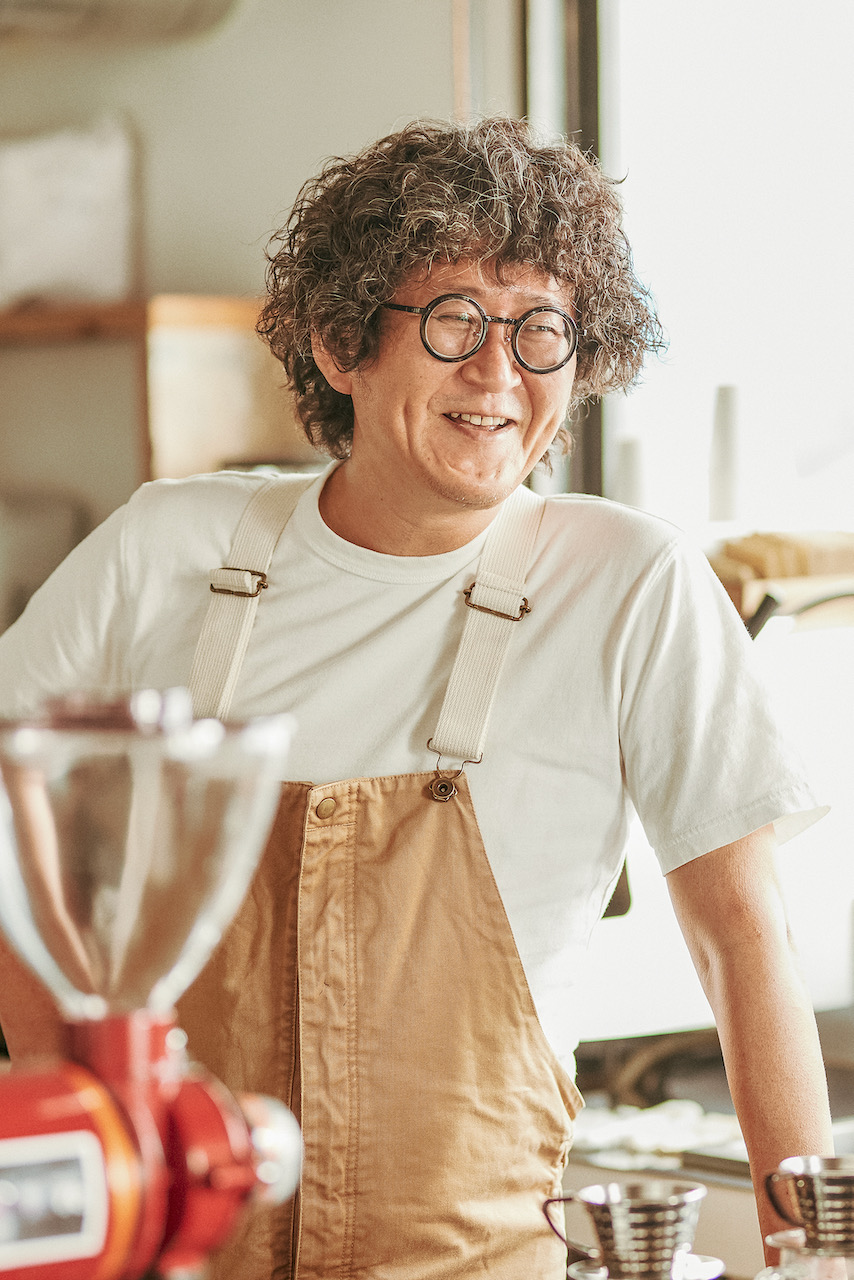
We want something that exudes without talking about it —Young owner's secret policy—
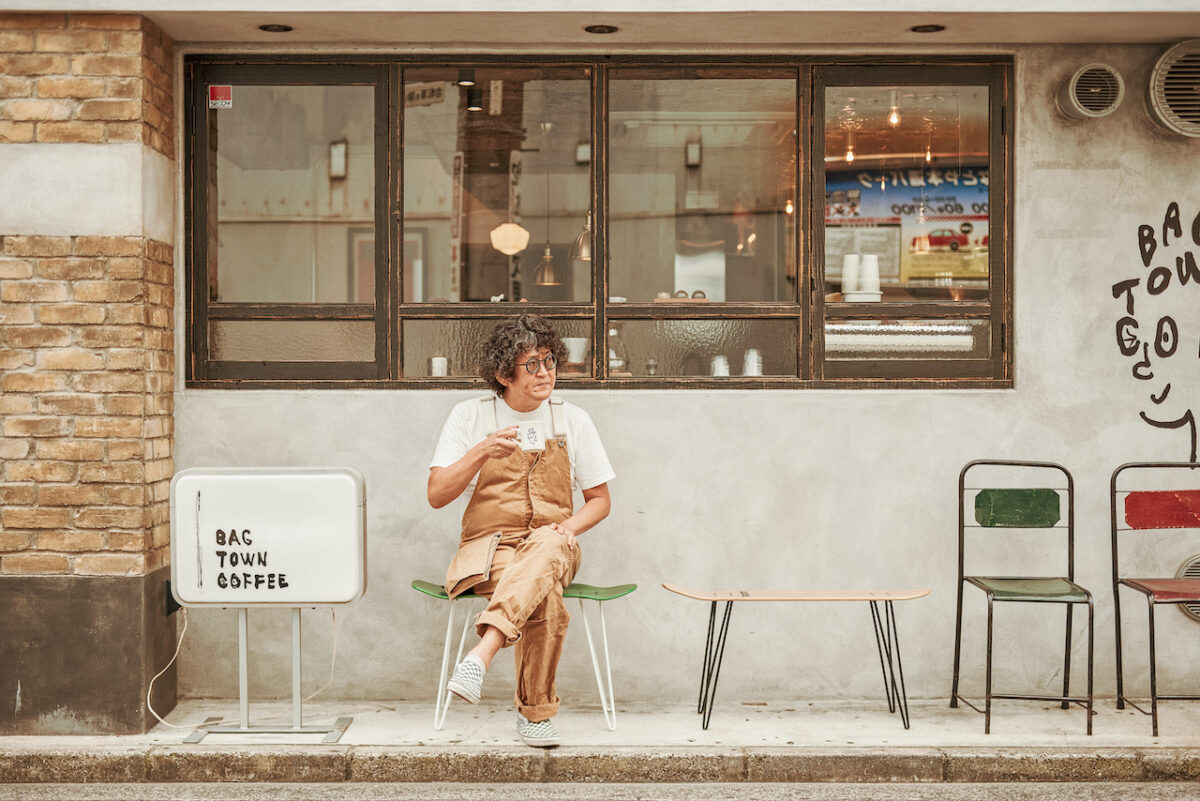
In April 2019, BAGTOWN COFFEE, a roastery opened in the city of Hiroshima. 49-year-old Atsushi Yamamoto, who left his former job before the age of 40 and entered the world of coffee at the age of 43, is a “young man”. We interviewed Mr. Yamamoto, who says “I wanted to be like a good sushi chef”. *We will be referring to him as Atsushi from here on.
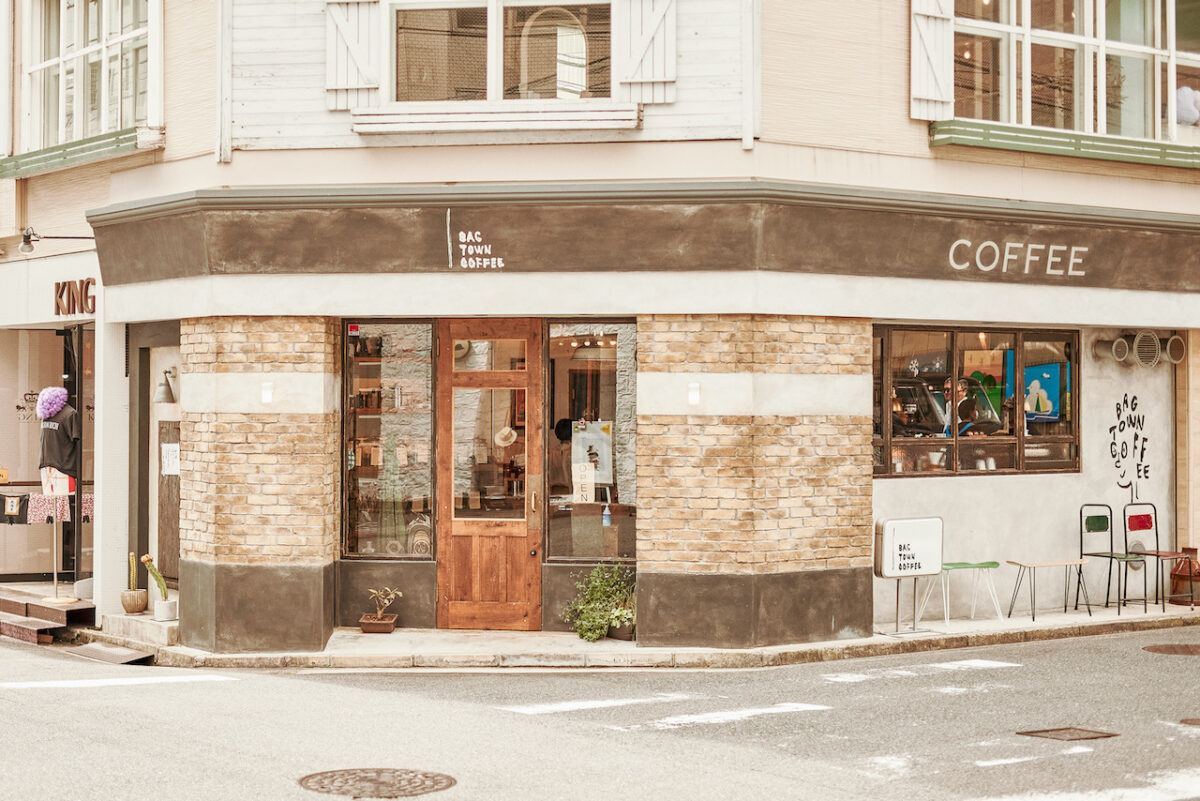
I don’t want to narrow down my own options
Located in the center of Hiroshima City, Hondori is one of the largest shopping streets in the Chugoku and Shikoku regions, lined with many chain stores of various types. The back streets running parallel to the street, known as Urabukuro, are lined with about 270 stores, mainly small independent stores, including restaurants, apparel shops, general merchandise stores and hair salons. Nestled in one of these corners is BAGTOWN COFFEE.
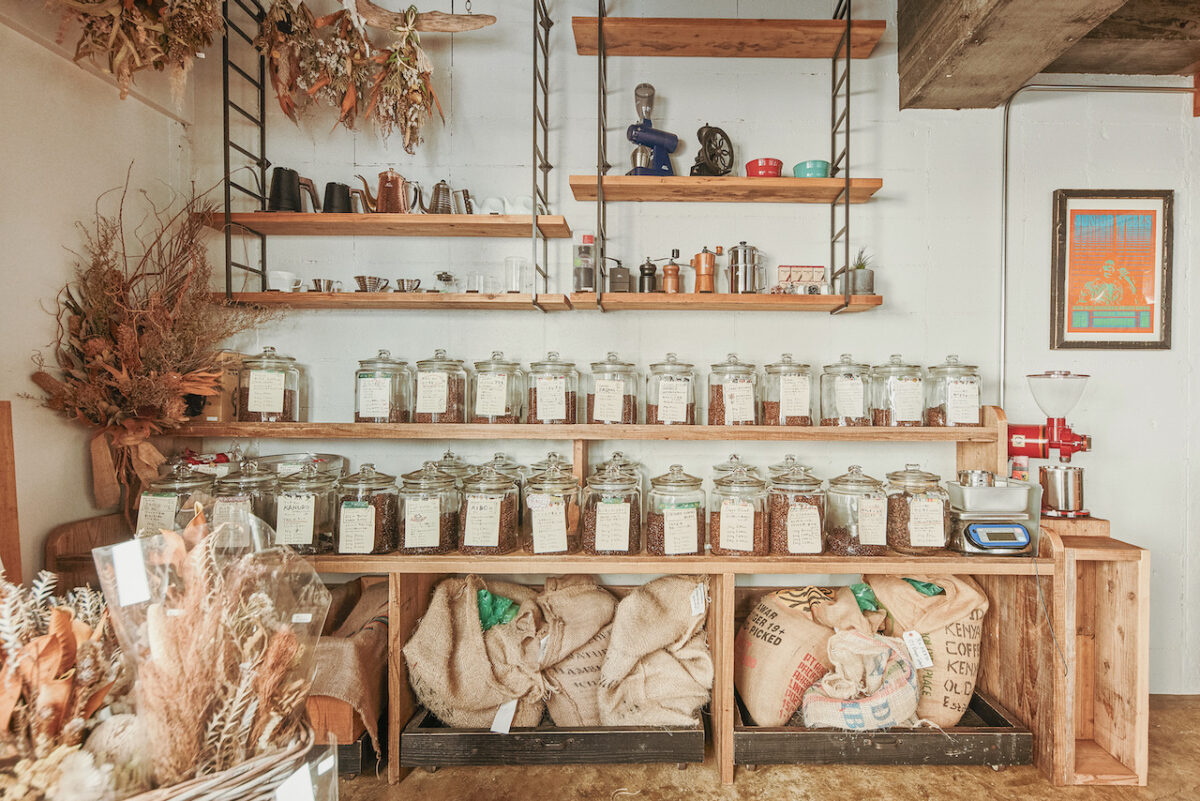
The shop has a wide variety of coffees, from commercial coffees to Panama Geisha, the best specialty coffee. The price range is also wide, from 550 yen to 4,000 yen per 100 grams.
“I myself would like to promote specialty coffee, but I also think it’s okay to have affordable coffee that you can gulp down for breakfast without thinking too much about it. I don’t want to narrow down my choices, since I only deal in coffee beans in the first place.
That’s why we don’t use the word “specialty” at all in our shop or on our social media. To begin with, being a coffee shop specializing in coffee beans is a high enough hurdle. I also tell the staff members at the shop ‘take good care of the customers who have been coming for a long time’.”
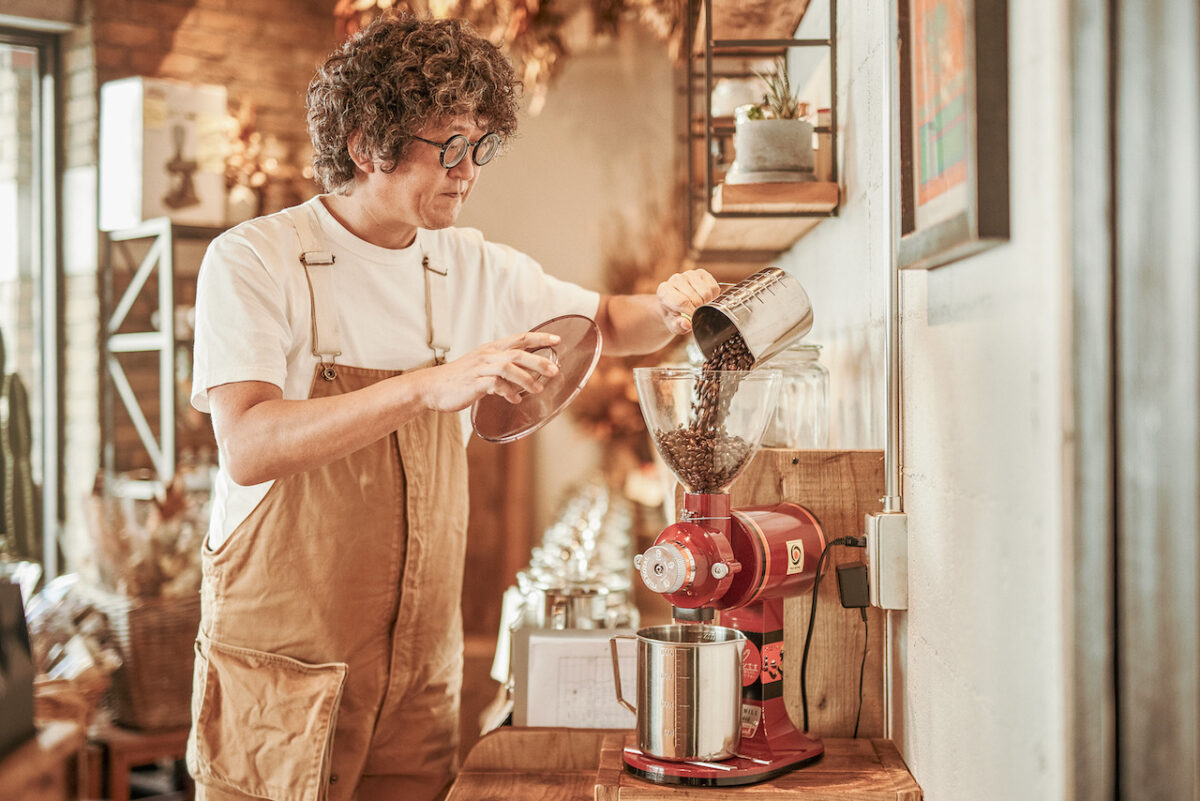
The owner, Atsushi, created the shop that reminds of the Showa era with handwritten product descriptions on the back of postcards and handwritten announcements using copy paper. He is now 49 years old and although you might think he is a veteran, he is a “young man” in the world of coffee having started his career at the age of 43.
“I’m still learning, so I’m trying to absorb as much as I can. Whether it’s equipment or brewing methods, there will be a lot of things to learn and I may try using new equipment that I learn from younger people.
There is an off-line gathering called “Yakiyaki-kai” where coffee shops in Hiroshima practice roasting and learn from each other, and it’s nice to be able to interact with people who are 10 or 20 years younger than me. But it’s only been in the last year or two that I’ve come to feel that way.”

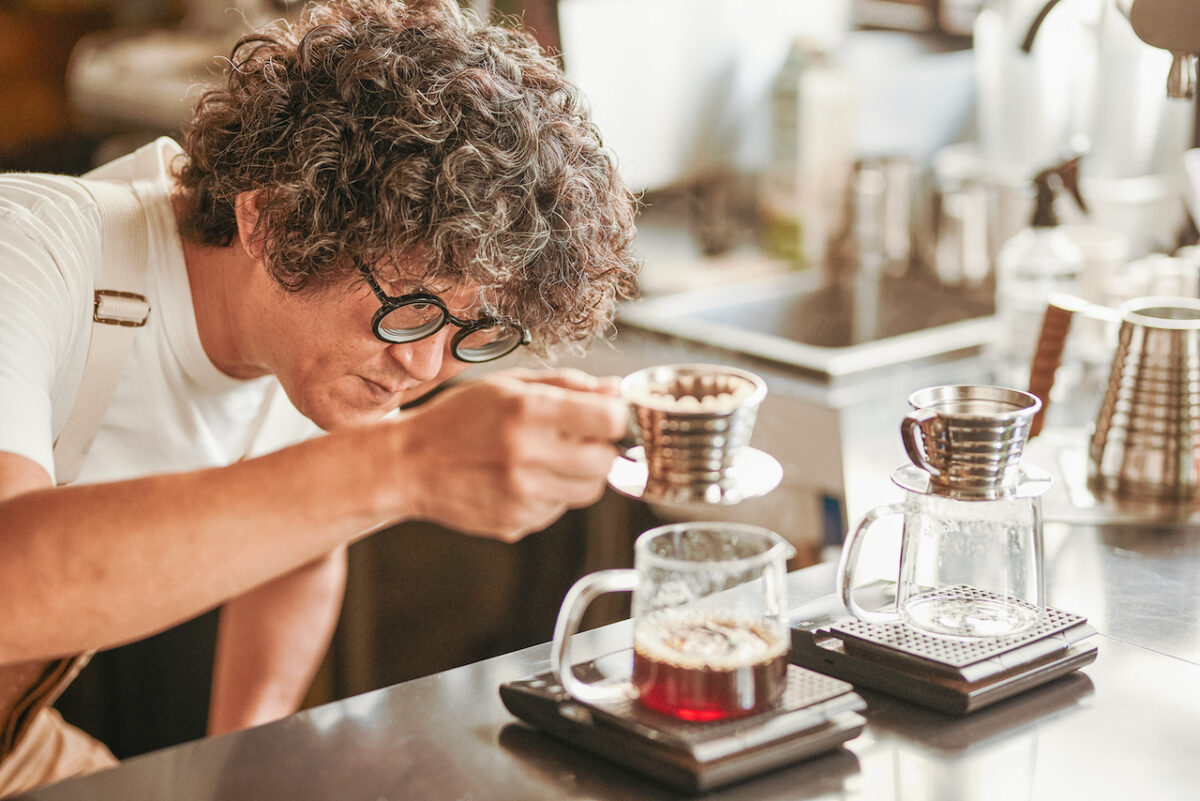
In search of confidence on what I am doing
After graduating from university, Atsushi worked as a salaryman in the IT field, but he quit his job and went freelance when he was just before 40 years old.
“I was tired of being a company employee who had to accept things I didn’t agree with for the sake of the company and its customers. I think we all have to deal with these feelings in our lives but one day I suddenly lost the thread. Perhaps the reason why I took the plunge and also got a perm just before I quit the company was because I was looking for a change in the midst of my doubts and conflicts.”
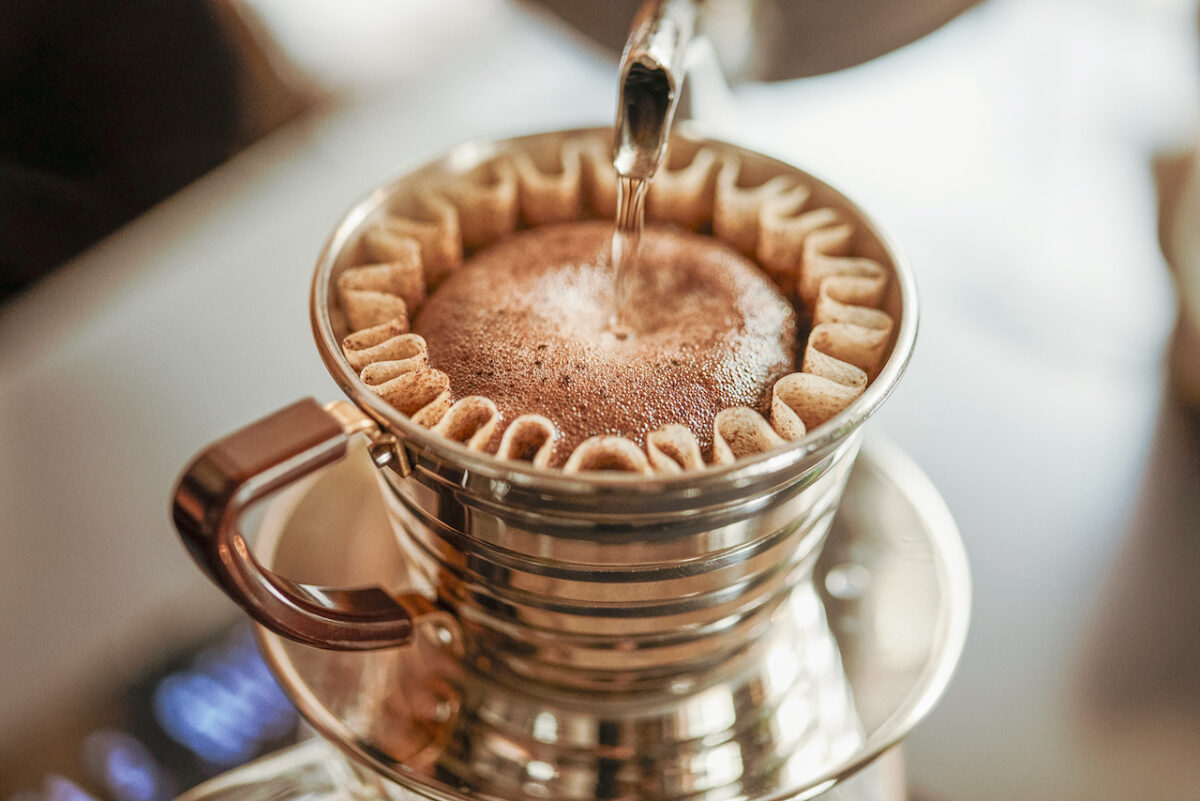
It didn’t take Atsushi long to realize that he had been naïve in thinking that he could make a good living as a freelancer. However, he didn’t know how to get out of the situation. He was in a position to support his wife and children, but he was not earning enough money to do so and he was becoming increasingly remorseful.
“My wife didn’t say anything to me, which made it even harder. It would have been easier if she had said ‘don’t do something stupid like that, just get a job somewhere else’.”
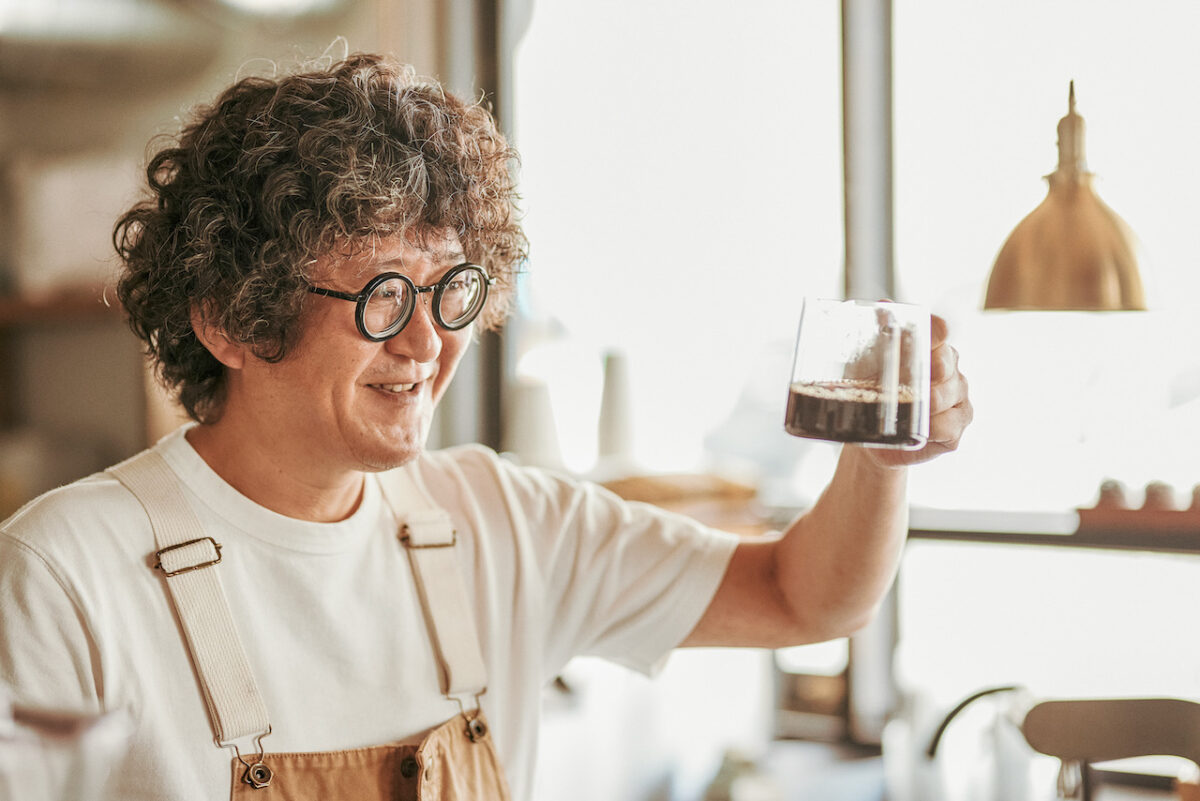
At that time, while taking his ailing mother shopping, he came across a coffee shop that she had been going to for about 40 years. The owner of the shop, which has a franchise in the prefecture, asked him if he would like to open a coffee shop. After that, Atsushi decided to enter the coffee business.
“I’ve been working in an office, sitting in front of a computer for about 20 years. I’ve never even worked in a restaurant as a part-time job and I’ve always avoided such jobs because I thought I was not good at them. But I found myself determined to do it without even a thought of whether I could do it well. It was a time when I was lost in my life, so I would have done any kind of work if I had the chance.”
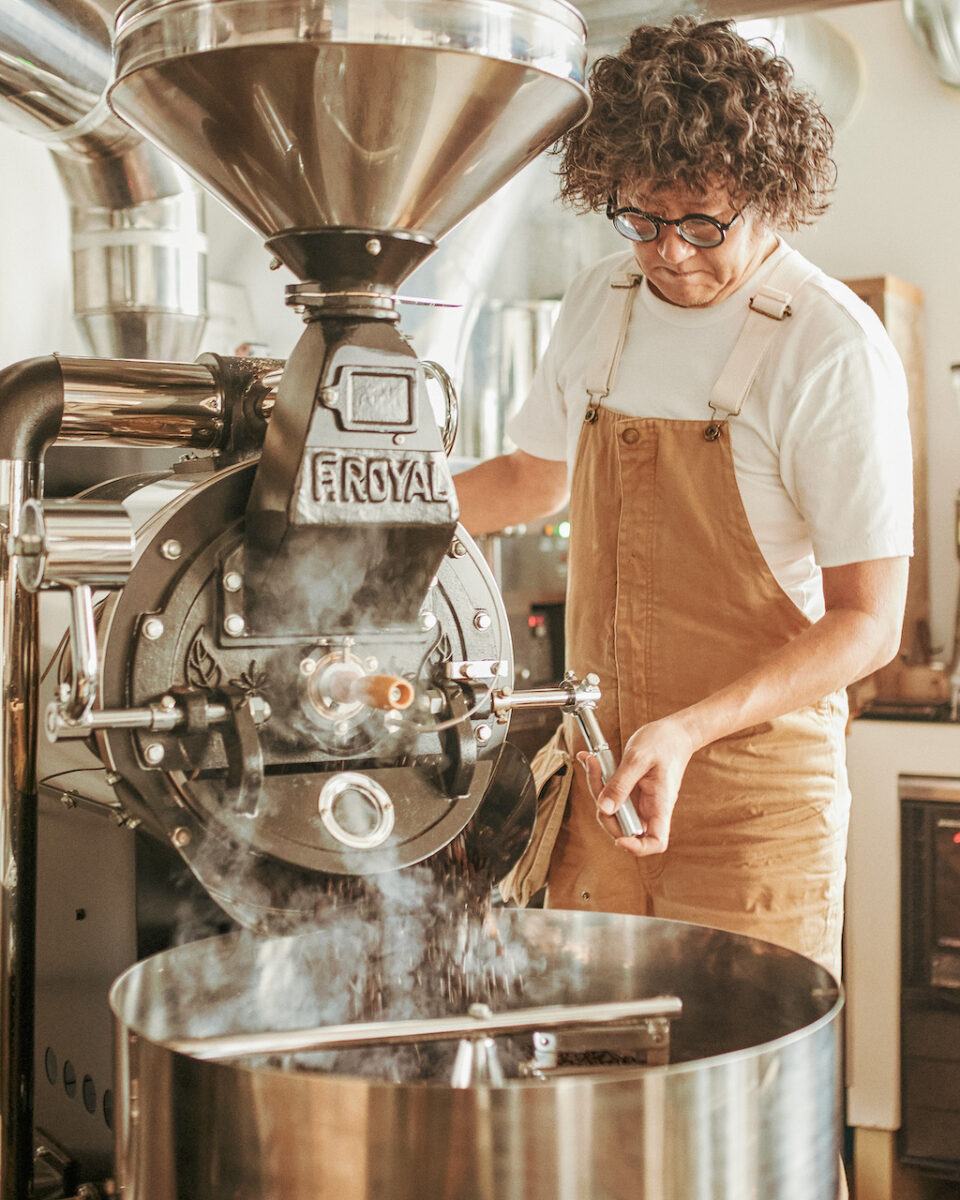
The coffee shop, which had a fully automatic roasting machine installed, had a business style of roasting green coffee in front of customers after receiving their orders. During the seven minutes it took to roast the beans, he would chat with the customers and provide them with freshly roasted coffee. Eventually, Atsushi opened his own shop, borrowing the shop’s name through goodwill.
“The live atmosphere was interesting as a business but I was not satisfied with the quality of the roasting. I felt uncomfortable because I couldn’t sincerely say ‘thank you’ to customers who said ‘the coffee here is delicious.”
He wondered if he could get a better taste if he roasted the coffee himself. As his thoughts grew, Atsushi attended a one-year (12 sessions) roasting seminar hosted by Fuji-Kouki. After that, he polished his skills by teaching himself.

After deciding to open his own shop and returning the shop’s trade name to its owner, Atsushi founded BAGTOWN COFFEE, which sells coffee beans in April 2019.
“I felt guilty that I didn’t come into this world with a love of coffee and a desire to run a coffee shop, so when I first started, I hated talking to other coffee shops. I was like ‘I’m sorry I’m not as gung-ho as you guys’.
At the time, I was frustrated and annoyed when other shops’ coffee was good and even when it wasn’t, I was irritated and wondered why they weren’t ashamed of serving it at such a low level. It wasn’t until I started to have some confidence in the coffee I was serving that I was able to deal with other coffee shops on an even keel.”

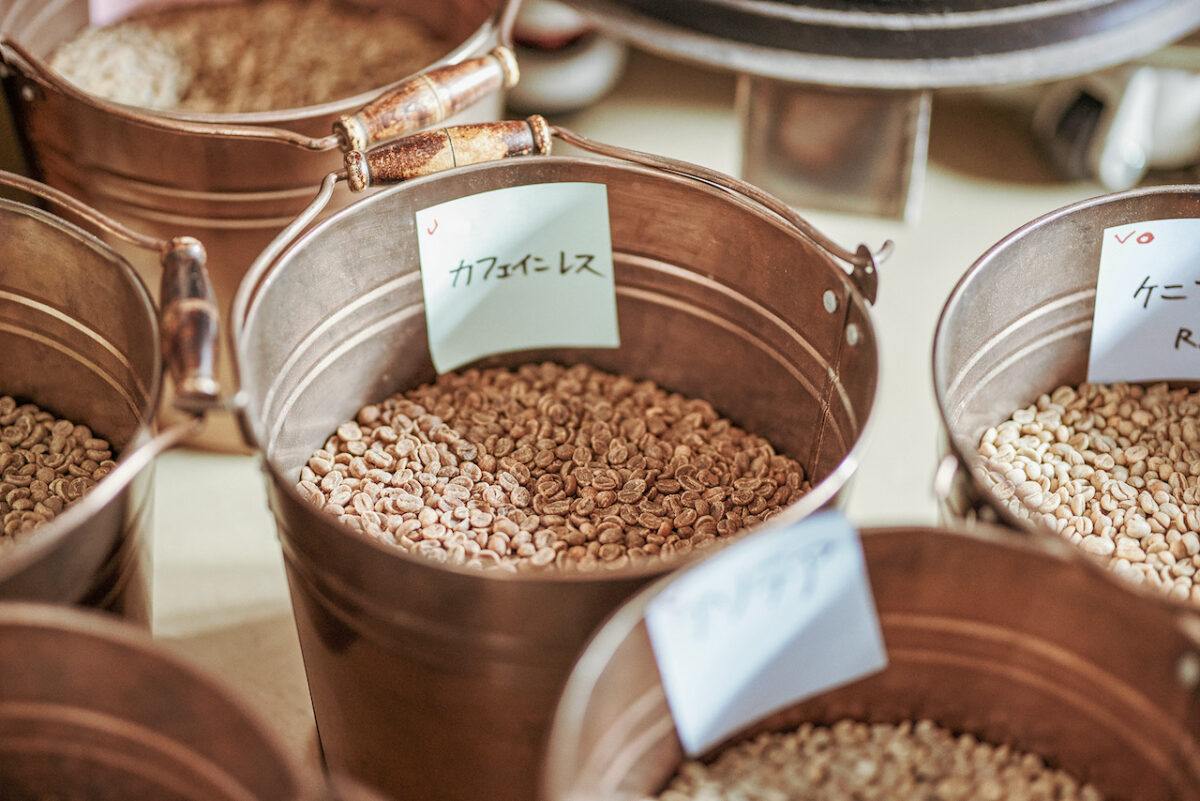
Personality that exudes
Atsushi had been drinking coffee since his salaryman days. But he was not never particular about it. Now he says he really likes the job of a roaster.
“I can’t bring out more than the full potential of the green coffee but it’s very easy to ruin the taste and the flavor. Whether it is roasting or storage, there are many factors that can ruin the taste of coffee. So I try to avoid them.”
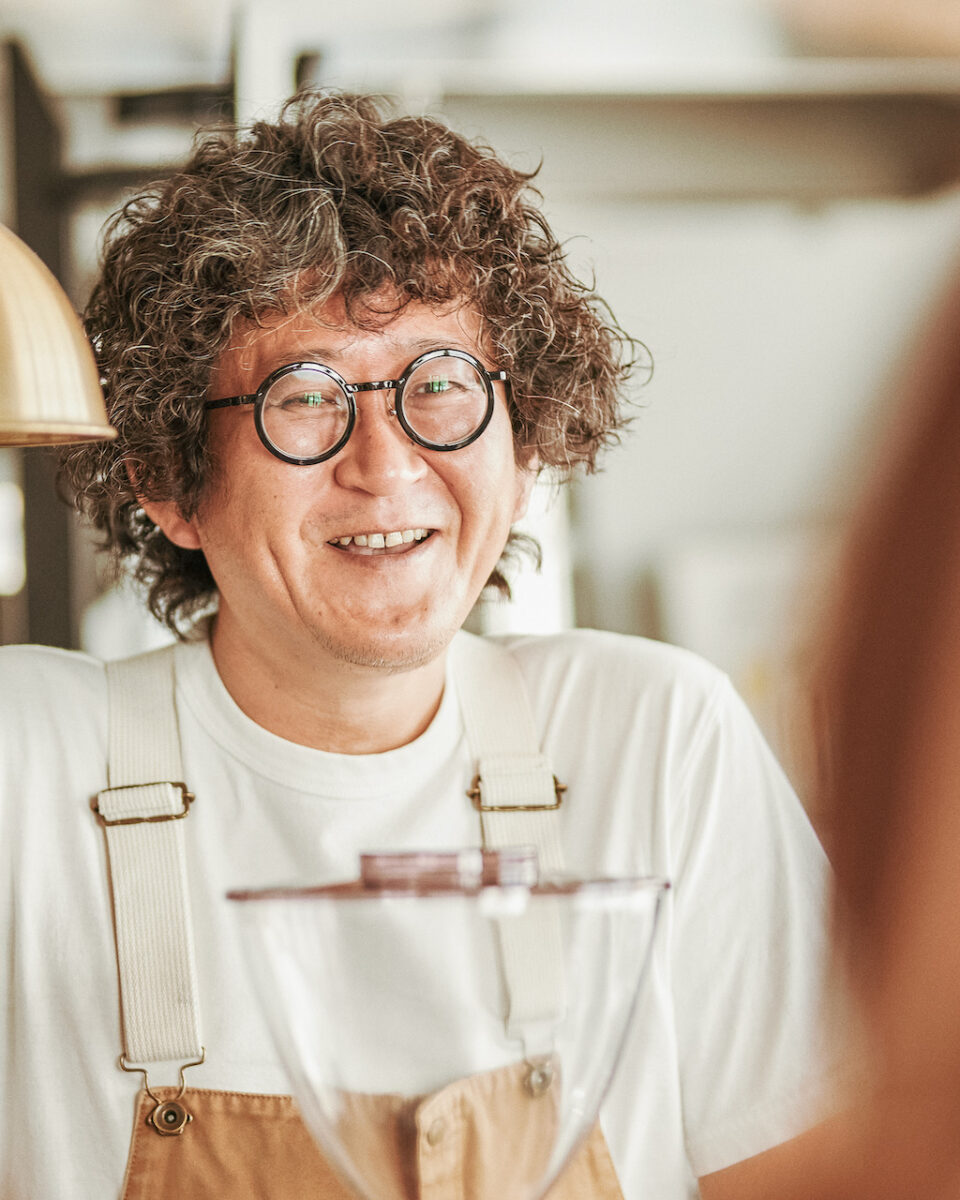
However, Atsushi rarely shows this aspect of his craftsmanship to his customers.
“I think I can say I am now very particular about coffee as well as music and books. To put it another way, it would be hard to find a person who has lived for almost 50 years without being particular on something. The old guys at coffee shops are all pain in the ass (laughs). It’s just right to be seen as someone who can be said ‘I like that guy. He’s so easygoing’.
I want to be able to have something solid and I think we all should have it. But I don’t want to show it to people or tell them about it. I want to convey it as something that exudes. There are geniuses in every world whether it is in music or literature but they are not mutants who came from nowhere. They’re rather people who have worked hard to accumulate the basic things. I am attracted to those who have that kind of background.
That’s why my ideal is a good sushi chef. Such chefs don’t have eye-catching signs or explanations such as ‘Oma tuna, a famous tuna that is unloaded at Oma port, that was caught just this morning’. I would like to create a dignified restaurant that has an atmosphere to accept people but still makes you feel like you have to behave.
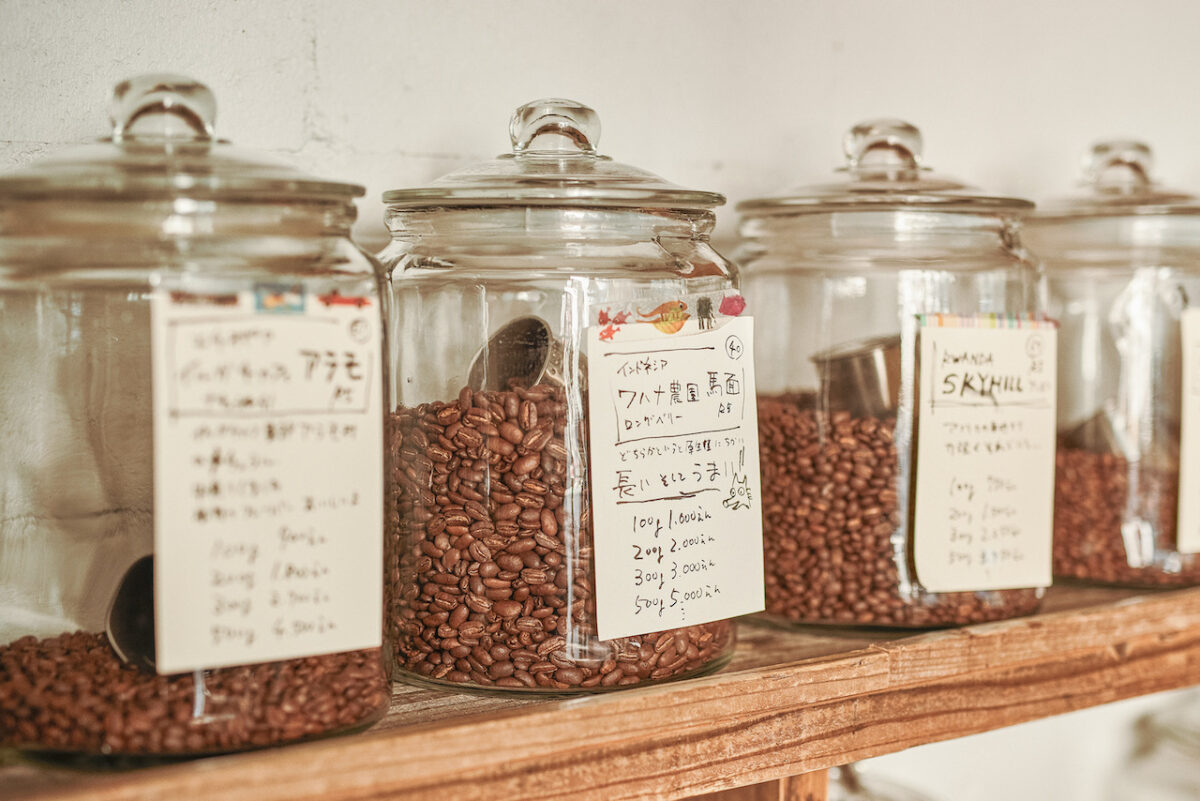
In fact, Atsushi does not have a website and his introduction on Facebook and Instagram is very simple. There are no advertising slogans to attract consumers’ attention. The coffee beans they sell are accompanied by handwritten “catchphrases” such as “Treasures of Yemen”, “Delicious, delicious, delicious,” and “Please don’t tell anyone”. Atsushi’s sense of humor shines through his introductions without a whiff of business.
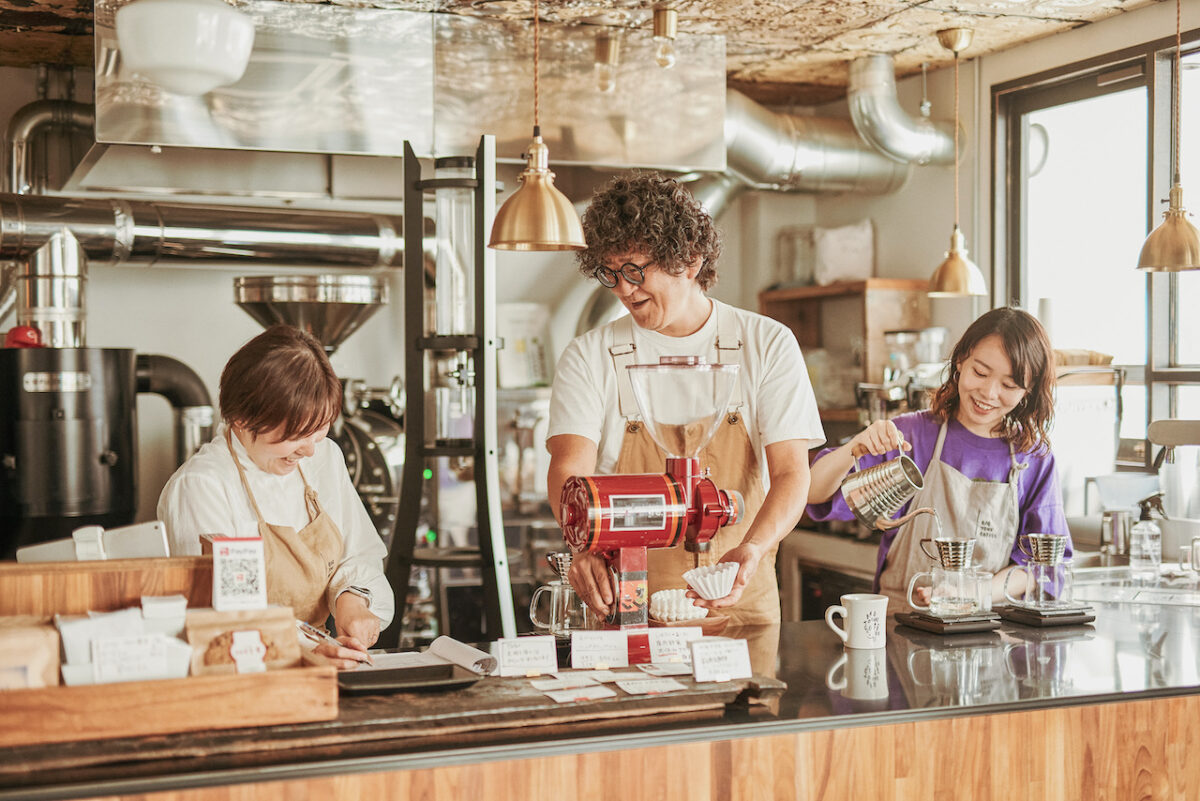
“To be honest, I’m pretending to be stoic (laughs). A lot of people tell me that I have to do online shopping or update my Instagram every day. I am well aware of that and I plan to start online shopping soon because it means creating jobs for my staff. But I guess the reason why I haven’t done anything about it until now is because I want people to come to my shop and buy my products.
I don’t want to be a hermit or something and I don’t mean to say things like ‘It’s not about the money’. Lack of money in business is the same as lack of oxygen in life and it’s shameful that I’m worrying about such things when I’m about to turn 50. But maybe there’s still a part of me that can’t harmonize the two.”

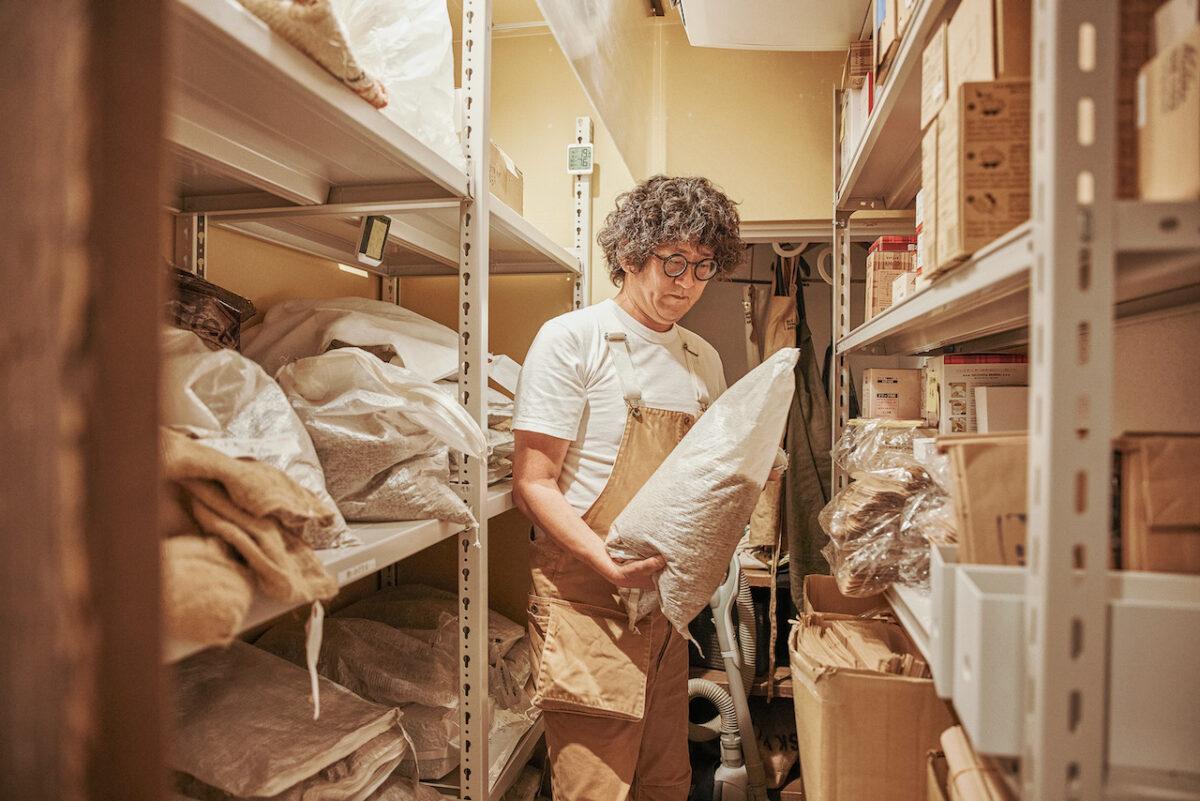
Longing alone won’t keep you going
BAGTOWN COFFEE is often visited by young people who want to start their own coffee shops. For them, owning a roasting machine and setting up their own shops like Atsushi’s is an object of admiration.
“I get angry when they say things like ‘I hope I can feed the family someday’, or ‘I can do my best for somewhile even if I can’t make a living’. And tell them ‘You should be more serious about your work.’
In their eyes, a coffee shop may look like a cool and glamorous job but in reality, it is mostly a series of humble tasks. There is no such thing as a stylish genius roaster who suddenly appears one day.”
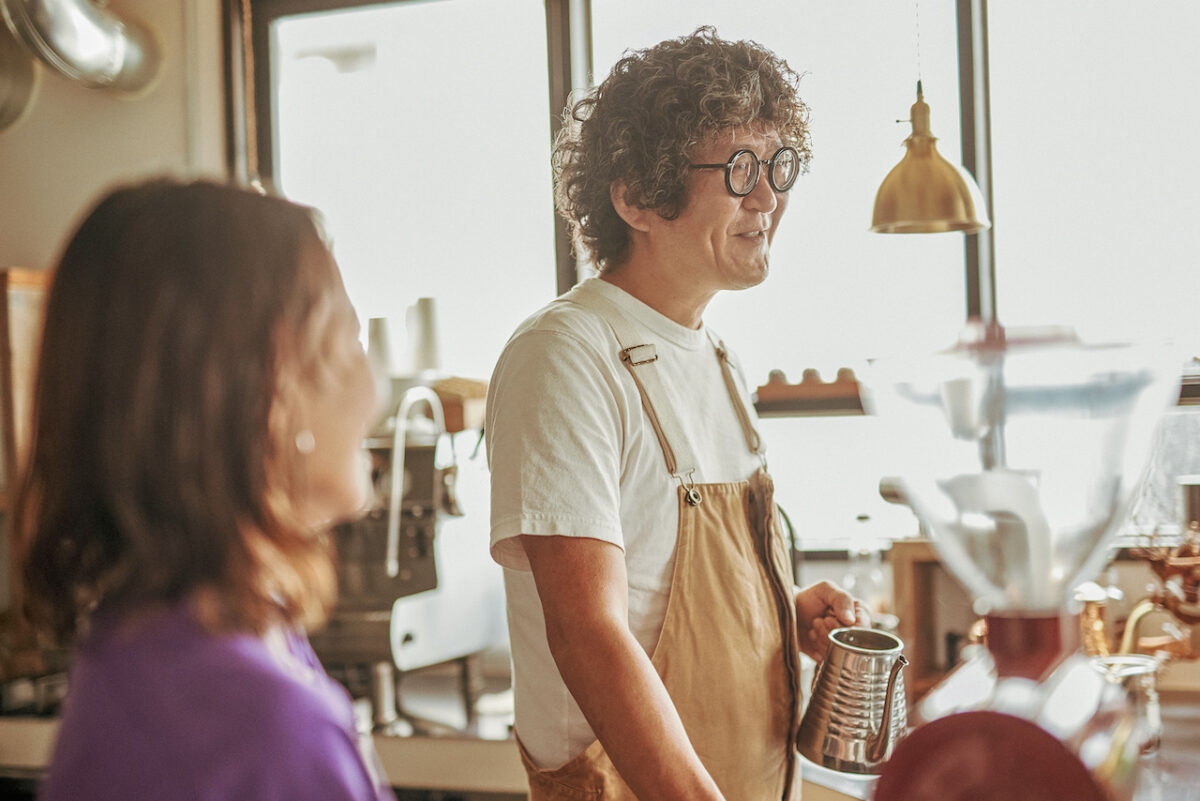
Atsushi’s stance is also the same when it comes to hiring staff. He prefers people who “like to serve customers” and “can work for a long period”. Although he doesn’t have strict requirements, he sometimes had to turn away young people who applied.
“When you have no career and you are nobody, if you do this job with a random mind, I don’t think it leads you anywhere. If that’s the case, it would be much more useful to work as a temporary office worker and learn how to use Excel.
I really understand the feeling of longing for something like that. I myself haven’t always been so grounded and it’s only recently that my mother has stopped scolding me. When my children were born and even when I opened the shop, she always scolded me, telling me to ‘get a grip’ (laughs).
However, I have seen many youngsters who enter this world with vague aspirations and quit. So I think it is my role as an “uncle” to point them out. Now as I became near 50, I feel the life of a human being is short. If you’re not focused in your life, you die quickly.”
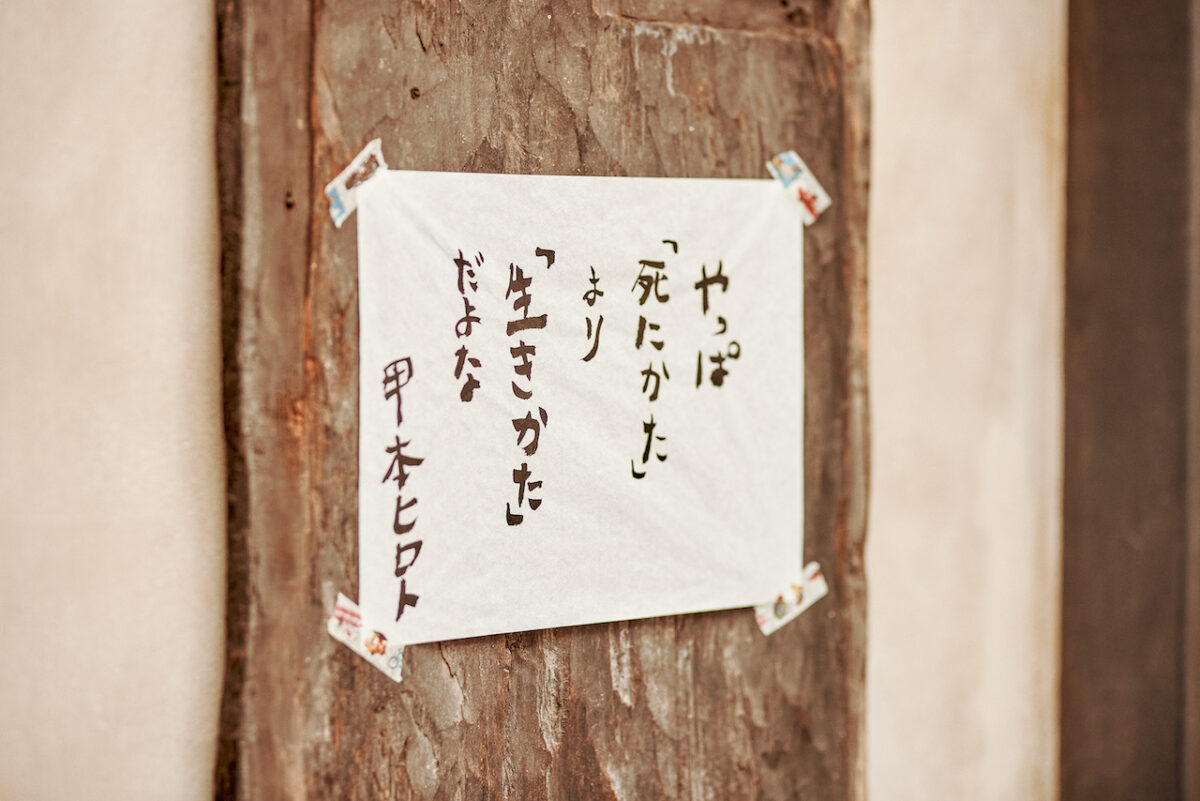
Atsushi is a “young man” in the coffee industry but he is no young man in life. Perhaps his ability to self-deprecate without embarrassing others and making the atmosphere more comfortable is due to his age.
The real appeal of coffee shops and other independent shops is not only the products and services but also the humanity of the owner. Today, BAGTOWN COFFEE continues to play its unique indie sound in Urabukuro, a place full of individualists.
Originally written in Japanese by Tatsuya Nakamichi
Photo by Kenichi Aikawa
MY FAVORITE COFFEE
The cup that my wife brews for me every morning at home. She doesn't measure the amount of beans and brews the water not in a strict way but that's fine, or at least that's the way I like it. Even if I am on a break, a cup of coffee at my shop is not a coffee break.

BAGTOWN COFFEE
- [Open]
- 11:00-19:00